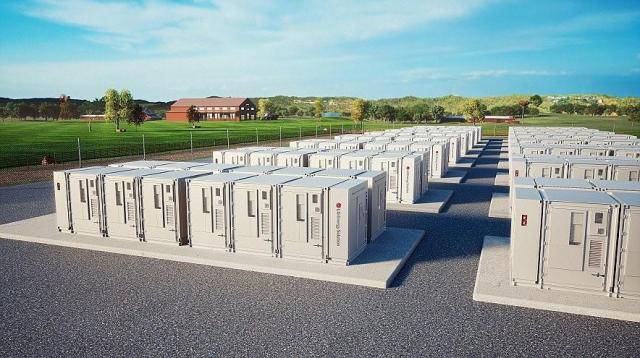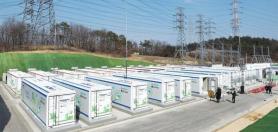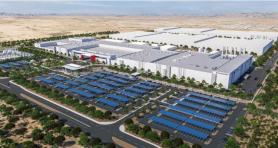
The Ministry of Trade, Industry and Energy unveiled plans for a nationwide tender to install 540 megawatts of battery energy storage systems (BESS), marking the country's first major government-led deployment of its kind.
The project is part of a broader effort to modernize South Korea’s power grid and support the transition to renewable energy.
South Korea’s battery makers, including LG Energy Solution and SK On, have been squeezed by waning EV subsidies and shifting demand, prompting a strategic pivot toward North America, where demand for grid storage is accelerating.
Under the terms of the government tender, operators will be required to construct battery storage facilities by 2026 and operate them for 15 years, managing the systems in coordination with the Korea Power Exchange.
The installations must meet a combined storage capacity of 3,240 megawatt-hours — enough to power approximately 40,000 electric vehicles equipped with 80-kilowatt-hour batteries. The total investment is estimated at around 1 trillion won, or $731 million.
The initiative is closely tied to South Korea’s 11th Basic Plan for Electricity Supply and Demand, which outlines an aggressive ramp-up in renewables.
The plan aims to boost the share of green energy from 8.4 percent of the national energy mix in 2023 to 29.2 percent by 2038. Solar and wind generation capacity is expected to quadruple — from 30 gigawatts to 121.9 gigawatts—necessitating large-scale energy storage to stabilize supply amid fluctuating output.
But South Korea’s battery industry faces mounting pressure from China, whose manufacturers, led by CATL, currently account for nearly 90 percent of global energy storage battery capacity. CATL expanded its footprint in January by establishing a South Korean subsidiary, signaling an aggressive push into the local market.
CATL also dominated the global EV battery market last year with a 37.9 percent share, far outpacing LG Energy Solution’s 10.8 percent, according to industry data.
In an effort to shield domestic producers and encourage local development, the South Korean government is introducing selection criteria for the BESS project that go beyond price. Bidders will be scored on a 100-point scale, with 24 points allocated for domestic industrial contribution and job creation.
Authorities will also evaluate the sourcing of critical battery materials such as cathodes, anodes and electrolytes.
“Energy storage systems are essential for integrating renewables, which are inherently volatile,” said Yoo Seung-hoon, a professor of future energy convergence at Seoul National University of Science and Technology. “The right policies must incentivize companies to use domestically produced secondary batteries.”
Copyright ⓒ Aju Press All rights reserved.




